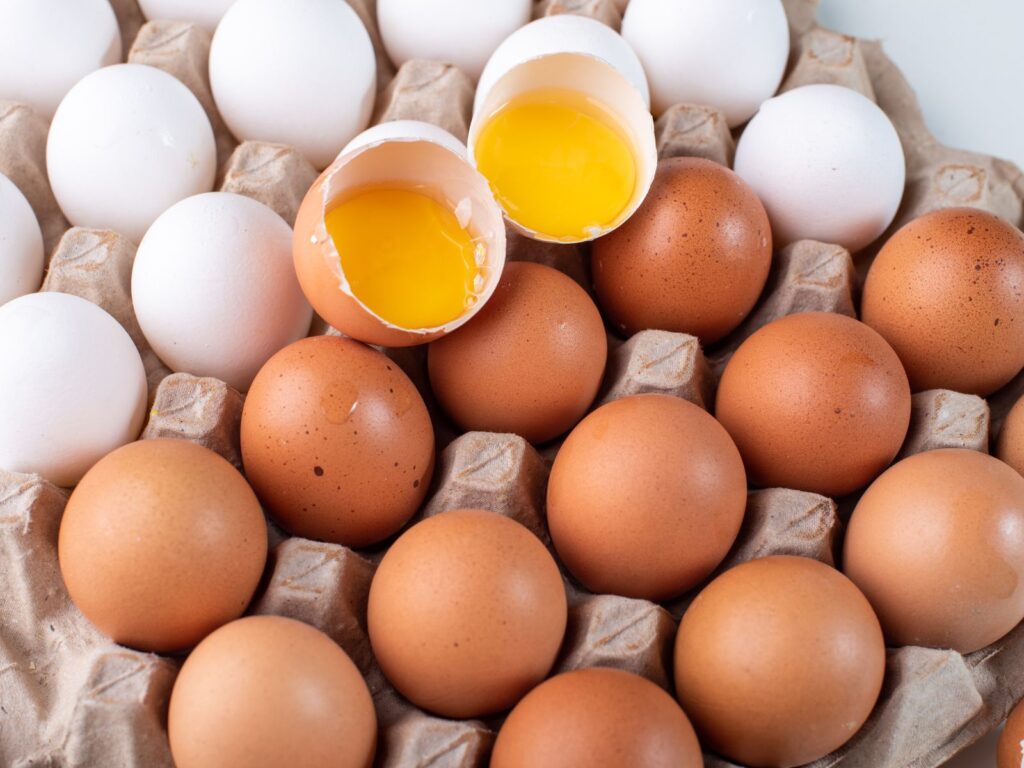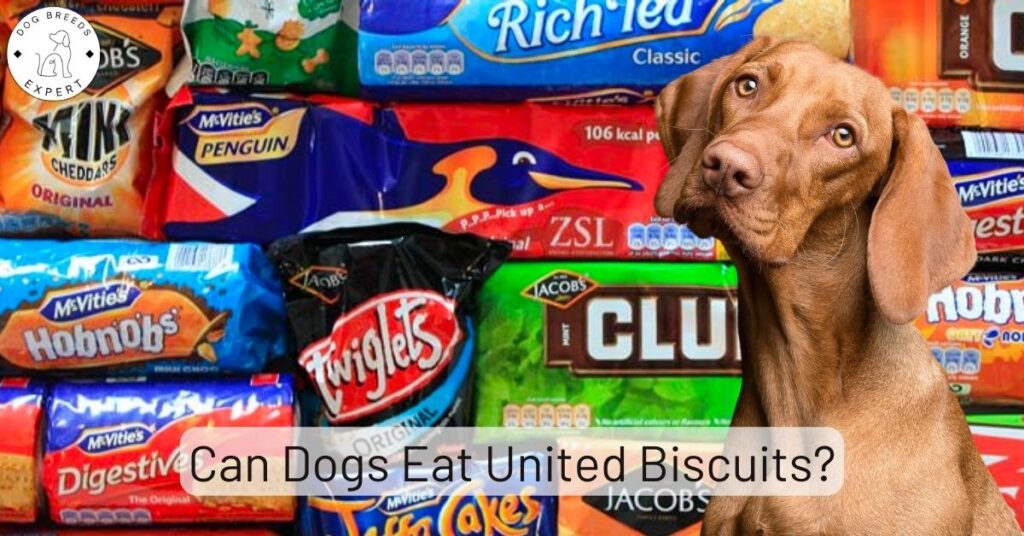As a dog owner, it’s essential to know which foods are safe and beneficial for our canine companions. Among the various food items that humans consume, dairy products and eggs are often part of our daily diet. But, is it safe for dogs to consume them too? This article will explore the suitability of dairy and eggs for dogs.

Dairy products, such as milk, cheese, and yogurt, can be a controversial topic among pet owners. Some dogs can handle small amounts of dairy, while others may experience digestive issues. It’s crucial to understand your dog’s tolerance and consult your veterinarian if you’re unsure.
Eggs, on the other hand, are generally considered safe and nutritious for dogs when cooked. They are rich in protein, fatty acids, and essential vitamins, making them an excellent supplement for your furry friend’s diet according to American Kennel Club. However, it’s vital to avoid feeding raw eggs to your dog as they can pose health risks.
Why Include Dairy and Eggs in Your Dog’s Diet
Nutritional Benefits

Eggs are an excellent source of protein, vitamins, and minerals for dogs. Not only do they provide essential amino acids, but they are also an affordable and easily accessible source of nutrition. Both chicken eggs and quail eggs can be incorporated into your dog’s diet. However, it’s essential to cook the eggs first to eliminate any potential bacteria and increase digestibility.
Dairy products such as paneer, kefir, and certain yogurts can also be beneficial for dogs. Paneer, a type of Indian cheese, is high in protein and calcium, which can support bone health and muscle growth. Kefir, a fermented milk product, contains probiotics that can promote gut health and improve digestion. It’s important to choose sugar-free and unflavored dairy products, as some dogs may be lactose intolerant or have difficulty digesting dairy.
Promoting Overall Health
In addition to providing nutritional benefits, eggs and dairy products can also promote overall health in dogs. The healthy fats found in egg yolks can support skin and coat health, while the choline content can aid cognitive function. Similarly, paneer’s high calcium content can help maintain strong bones and teeth.
Probiotic-rich kefir can help balance good and bad bacteria in the gut, leading to better digestion and potentially boosting the immune system. However, it’s essential to introduce these foods gradually and monitor your dog’s reaction, as some dogs may develop allergies or intolerances.
Remember to always consult with your veterinarian before making significant changes to your dog’s diet, and be sure to choose dog-safe dairy products and properly cooked eggs as part of a balanced nutrition plan.
Types of Dairy and Eggs for Your Dog
Cheeses
There are various types of cheese that can be safely given to your dogs in moderation. Some popular choices for dogs include Colby Cheese, which is a semi-hard cheese derived from cow’s milk, and Paneer, a fresh cheese made from curdled milk. When feeding your dog cheese, it’s essential to remember that some dogs may be lactose intolerant, so always introduce it in small amounts and observe for any adverse reactions.
Milk Products
Milk products like Kefir and Powdered Milk can also be introduced to your dog’s diet. Kefir is a probiotic-rich, fermented milk product that has numerous health benefits for dogs such as improved digestion and immune system support. Powdered milk, on the other hand, offers a convenient alternative to liquid milk and can be used to add nutritional value to your pet’s food.
| Milk Product | Benefits |
|---|---|
| Kefir | Probiotic-rich, improves digestion & immunity |
| Powdered Milk | Convenient, added nutritional value |
Eggs
Eggs are a highly nutritious and safe food source for dogs. They are high in protein, fatty acids, vitamins, and fatty acids, and they can help support your dog’s health. Cooked eggs, such as whole eggs or just Egg Yolk, can be provided to dogs as they are easier to digest than raw eggs. Additionally, you can also consider giving your dog Quail Eggs as they are smaller in size and a good alternative to chicken eggs.
To sum up, when introducing dairy and eggs to your dog’s diet, it’s vital to do so in moderation and ensure the products are suitable for your pet’s dietary needs. Observe your dog for any signs of discomfort or allergies, and adjust their diet accordingly.
How to Safely Feed Dairy and Eggs to Your Dog
Feeding dairy and eggs to your dog can be a healthy and nutritious addition to their diet when provided in moderate amounts. This section will discuss how to safely introduce these foods, focusing on appropriate portion sizes and gradually incorporating new items.
Portion Sizes
When providing dairy and eggs to your dog, it’s crucial to offer the appropriate portion sizes to avoid digestive issues and maintain a balanced diet. For eggs, giving your dog an occasional bite of hard-boiled egg or some scrambled eggs sprinkled on top of their dog food can be a suitable option.
For dairy products like milk, cheese, and butter, small quantities are key. A few tablespoons of cow’s milk or goat’s milk can be a nice reward on an occasional basis. However, you should limit butter as it can have negative impacts on a dog’s health due to high fat and calorie content.
Introducing New Foods
When introducing dairy and eggs to your dog’s diet, it’s crucial to do so gradually to ensure they can digest these new items properly. Some dogs can be lactose intolerant, meaning they can’t produce the enzyme lactase necessary for digesting lactose found in dairy products.
To check if your dog can tolerate dairy, try adding a small amount of a low-lactose food, like cottage cheese or yogurt, to their diet and observe for any signs of lactose intolerance. If your dog shows no adverse reactions, you may continue to introduce other dairy items in modest amounts.
Keep in mind that every dog’s digestive system is different, and some may tolerate certain foods better than others. Always consult with your veterinarian before incorporating significant dietary changes and be diligent in observing your dog for any signs of discomfort or intolerance.
Possible Risks and Precautions
Lactose Intolerance
While some dogs can tolerate dairy products like kefir, paneer, or small amounts of colby cheese, others may experience lactose intolerance. Lactose intolerance in dogs can lead to gastrointestinal symptoms such as diarrhea, vomiting, and gas (American Kennel Club). If you notice these symptoms after giving your dog dairy, it’s important to stop offering these products and consult with your veterinarian.
Egg Allergies
Eggs can be a nutritious snack for dogs, providing essential proteins, vitamins, and minerals. However, some dogs may be allergic to eggs, exhibiting symptoms such as itching, skin irritations, or gastrointestinal issues (American Kennel Club). Quail eggs and egg yolks are also potential allergens, so it’s essential to monitor your dog after providing these products, and discontinue their use if any allergic reactions occur.
Choosing High-Quality Products
To ensure the safety and health of your dog, it’s critical to choose high-quality dairy and egg products. Opt for pasteurized dairy items, such as kefir, paneer, or powdered milk, to minimize the risk of bacterial contamination. Additionally, selecting organic, free-range, and hormone-free eggs (including quail eggs) can contribute to the overall health of your dog by providing a more natural and nutritious option.
Overall, paying close attention to the quality of the dairy and egg products you offer your dog, as well as monitoring their reaction to these foods, can help mitigate potential risks and ensure your pet’s overall health and well-being.



